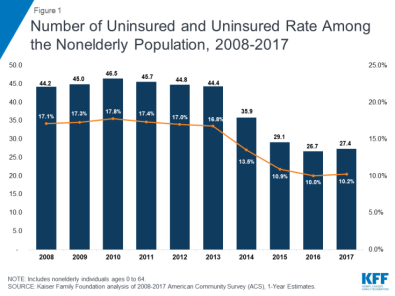Introduction – Take 3
I don’t know if anyone is still following this thing. I don’t advertise it but if I write on here, will this trigger an email or something to someone? If so, then, “Hello again.” It’s been a few years since I’ve added to this blog, I hope your pursuit of actuarial knowledge in the meantime has been joyful.
I’ve recently adjusted some of my career and life goals and wanted to start writing about my new direction. I enjoy writing in a blog because it forces to me to think of the reader. If I just think without writing or even if I write for myself, there is a lot that can be left unsaid. So whether you’re reading this thing or not, I’m going to be writing. Not with any real consistency, mind you. With my time being prioritized between 3 young kids and work and school, I’m not going to add some unnecessary stress of a blog deadline. However, this is something I genuinely enjoy and want to pursue so I hope to be out here frequently in 2019 and forward.
The New Quest
In December 2017 I began thinking about pursuing more education. Work was going very well and while I was continuously getting my hands on new things and gaining business and actuarial knowledge there, I wanted to expand my mind in ways outside of work. Economics is a topic that I’ve always been drawn to so I started researching my options for graduate work in economics in the Bay Area. After lots of web surfing and a few phone calls and email discussions, I decided to begin a Masters in Economics at CSU East Bay in Hayward, CA. The professors and staff there impressed me and their program was the most flexible. Here I could take evening classes and go as fast or as slow as I wanted.

My first semester at CSUEB (actually, back then they were quarters), was a Macroeconcomic Theory course taught by Dr. Kai Ding. This class was fascinating. Even though it was a theory course, Dr. Ding did an excellent job of bringing practical applications into the coursework. I felt like he and I think a lot alike. After going over a theory the next logical question was always, “So what?” i.e. how do we use this? He trained us to come up with examples for each of our theories and formulas so that the learning wasn’t always abstract. After every Monday evening class I walked to the bus station with a big smile on my face. I would text my wife about how cool class was and expressed my appreciation for her wrestling the kids by herself that night so I could pursue this.
Being back in the classroom has got me thinking more outside of the life of an actuary at an insurance company. The life of an actuary has been very good to me, but perhaps it has simply been a stepping stone to something more. I feel a pull in a new direction. Well, it’s two new directions, really. Though the two are fairly parallel.
One pull is the academic life. I love the classroom. I enjoy being in class and debating with and learning from smart people. I enjoy teaching others about those topics that interest me. My plan right now is to finish my masters at CSUEB and then pursue a PhD in some form so I can prepare to teach and lead research at an academic level. How, what, where? Well, the details are not worked out yet, but I have time to figure that out.
The other pull is in public policy. Healthcare in the US is messed up. Much of the reason it has so many problems is the lack of education and understanding of basic healthcare and economic principles which drive the current system. I plan to write here and anywhere else I can to bring education on US healthcare and find other ways I can affect policy in providing sound advice to policy makers.
Why the Pursuit of Knowledge of US HealthCare
 It would probably be more interesting if I had a stirring backstory about how someone I know or love was devastated by the crippling debt of medical bills, or that I myself was grossly mistreated by a physician for a particular diagnosis. But the reality is, I don’t have such a story. I have been extremely fortunate not only with good health but with employment to always have access to high quality and affordable healthcare. My motivation comes from spending much of my day using data and analysis to solve problems. US Healthcare is like a big puzzle that needs to be solved. Unfortunately, I feel, too many people with a misunderstanding of actuarial principles are proposing the solutions. It is my view that health actuaries, with their rigorous training in economics, statistics, and insurance regulation, are in a unique position to be key contributors to the healthcare solution.
It would probably be more interesting if I had a stirring backstory about how someone I know or love was devastated by the crippling debt of medical bills, or that I myself was grossly mistreated by a physician for a particular diagnosis. But the reality is, I don’t have such a story. I have been extremely fortunate not only with good health but with employment to always have access to high quality and affordable healthcare. My motivation comes from spending much of my day using data and analysis to solve problems. US Healthcare is like a big puzzle that needs to be solved. Unfortunately, I feel, too many people with a misunderstanding of actuarial principles are proposing the solutions. It is my view that health actuaries, with their rigorous training in economics, statistics, and insurance regulation, are in a unique position to be key contributors to the healthcare solution.
Why do I care about US Healthcare? I firmly believe that healthcare is a necessity to pursue happiness. The lack of healthcare is holding back the US from producing top talent and from further economic progress. I wrote a series of posts in 2014 in connection with the implementation of Obamacare, you can read that here if you like. Much of my concern and arguments for a change in US Healthcare from back then are still applicable today…
- Prior to the enactment of the Affordable Care Act, there were 44.4 million uninsured in the US. While the ACA expanded access to roughly 15 million Americans that did not have insurance previously, there are still around 27 million uninsured today.

- Unlike in 2014, medical costs in recent years are not outpacing regular inflation. This is because healthcare spending is non-cyclical. That is, we tend to spend the same amount on healthcare regardless of if there is an economic recession or boom. Because CPI has been growing steadily and we’ve had very low unemployment in recent years, normal inflation has surpassed medical inflation since mid-2017. However, healthcare still makes up an alarming 18% of GDP in 2017 and this will only increase if the economy takes any kind of downturn.
- The US continues to spend far more on healthcare per capita than any other first world country in the world (roughly double) and for statistically worse care.
- In my post 5 years ago I mentioned that medical bills are the #1 reason people go bankrupt in the US. Recent studies show that the truth is more gray. The difficulty in determining this is if someone has debt from mortgage, cars, loans, credit cards, and medical bills, which of these actually caused them to declare bankruptcy? Some will say it was the medical bills but we have very poor data on how much of this debt actually can be attributed to medical bills. We can say with confidence, however, that bankruptcy due to medical bills is much higher in the US than in any other developed country as we are one of the last to not have universal coverage.
So there you have it, hello again. This was a short intro into what I hope to be some continued movement on the blog. What will future posts entail? Well, I’m the type of person that likes to understand all possible angles of a topic so that’s what I’ll do with US Healthcare. I’ve begun a list of what I’ve deemed ‘blind spots’ in my own understanding of the healthcare problem. I plan to research and then write about each of these blind spots. What is a blind spot? Could be any piece of the healthcare system that I feel I don’t understand. Anything I have come across that may be contributing to or affecting the incredible inefficient machine that is US Healthcare. A few blind spots that come to mind at the moment are: building and maintaining a hospital, understanding the CDC and FDA, the economics of medical school, skilled nursing facilities and other end-of-life care, state departments of insurance, medical malpractice, and on and on, you get the idea.
So, I hope you’ll join me as we delve into the various aspects of the healthcare system and we can learn together the many ‘why’s this thing is so screwed up.
As always, I’m open for suggestions or discussion in the comments. Thanks for reading.
January 14, 2019 at 1:23 pm
So glad Sammy is writing again! Not surprised you feel a pull toward academia. Grandpa Dyal never got to obtain a degree but he was a lifelong learner. Both Dad and I were surprised to learn that medical costs right now aren’t outpacing inflation. Of course, that can change quickly. I really look forward to future Sammy blogs! Love, Mama ❤️
Sent from my iPhone
>
January 15, 2019 at 3:18 pm
Although personal stories of how someone or a loved one was devastated by a healthcare problem that came completely out of nowhere really get people stirred to act, I think yours is even more important. I wish more people would think about the importance of a problem before waiting for it to impact them. I also love that there is a problem and the only solution: ACTUARIES! I really enjoyed your analysis and hearing about your new and awesome journey. I can’t wait to call you Doc Rock.